November 20, 2019
Dear waste pickers and allies,
We are happy to share with you the new issue of Struggles and Victories: Waste Pickers on the Frontline, the Global Alliance of Waste Pickers newsletter, with news from all around the world.
In solidarity,
Communications support team for GlobalRec.org
Table of Contents
Latin America
Europe
North America
Latin America
- Waste Pickers’ voice heard at the UN- World Habitat Day (Mexico)
- Over 2000 Urban Waste Pickers Join the Collective Market System in Buenos Aires (Argentina)
- Recyclable Materials Travel 400 km by Train to Be Marketed in Buenos Aires (Argentina)
- Waste Pickers under Attack in Downtown Buenos Aires (Argentina)
- Waste Pickers in Colombia Build a Second House for Waste Pickers (Colombia)
- Charges Filed by the Municipality of Rionegro against ‘Planeta Verde’ are Dismissed (Colombia)
- Huge Protest against Waste Incineration (Brazil)
- The Third Zero Waste Meeting Ecuador 2019 was Held in Quito (Ecuador)
Europe
- Big win for waste pickers in Paris, major lessons learned from the South: a global movement (France)
North America
 Latin America
Latin America
Waste Pickers’ voice heard at the UN World Habitat Day (Mexico) (11/09/2019)
On account of the World Habitat Day held by the United Nations last October 7th, 2019, Abel Balderas Ramirez was invited, on behalf of the waste pickers’ sector and the Global Alliance of Waste Pickers, to take part of the round table “The Informal Waste Economy and Migration”. The following speakers were also members of the panel: Elkin Velásquez (UN-Habitat Mexico/LAC); Thiago Mundano (Cataki); Tania Espinosa (WIEGO) and Vidal Llerenas (Azcapotzalco’s Mayor). Abel Balderas Ramirez works as waste picker and he presided over the Industrializable Solid Waste Workers’ Association called Lázaro Cárdenas del Río, a workers’ association that gathers people who work at an open dumping site, which was created 26 years ago in the district of Dolores Hidalgo, State of Guanajuato, Mexico.
Over 2000 Urban Waste Pickers Join the Collective Market System in Buenos Aires (Argentina) (10/29/2019)
The collective market system was established some years ago. However, in March, over 2000 waste pickers from the ‘Amanecer de los Cartoneros’ Cooperative, in Buenos Aires, Argentina, joined the market voluntarily, since they considered it a better opportunity for them and for the sector as a whole. In the past, urban waste pickers had to carry materials back to their homes and keep them for around a week, until Saturday, when they could sell them at very low prices. As of this year, each worker is assigned a number of buildings, houses, and businesses which give them recyclable materials that have already been separated. Then, the cooperative transports, processes, packages and markets the materials, and distributes the profits depending on the kilograms of waste each worker has collected. Argentine waste pickers are assigned a pick-up point, where a truck collects the bags with recyclable materials and takes them to the processing plant for their sorting out, packaging and sale. Each bag is labelled and weighed separately, so as to determine the kilograms of materials each worker has been able to collect. Materials are directly sold to factories, thus avoiding middlemen and getting a price 40% higher than that of informal storage systems. Thanks to the huge and uninterrupted effort made by the waste pickers organized under the Federation of Waste Pickers and Recyclers of Argentina (FACCyR/CTEP), subsistence is now a path of resistance to achieve social transformation.
Recyclable Materials Travel 400 km by Train to Be Marketed in Buenos Aires (Argentina) (10/28/2019)
On July 29, the Cooperative of Urban Waste Pickers of Tandil, which is located in the province of Buenos Aires, Argentina, sent recyclable materials to the city of Buenos Aires for the first time in history. The materials traveled 400 km to Buenos Aires so that they could be included in the collective market system already in place in the capital city. As a result, waste pickers from Tandil can receive a higher price for the materials they have collected, while helping to protect the environment. It is fundamental to consider that this huge effort will prevent the burying of 30 tons of waste (including cardboard, paper, and plastic) in dumpsites. Instead, these materials will be once again in the market. This effort also helps waste pickers find a market for those materials that they cannot sell in Tandil. This has been a huge step for the Cooperative of Urban Waste Pickers of Tandil, whose members are organized under the Federation of Waste Pickers and Recyclers of Argentina (FACCyR-CTEP) that brings together 80 waste pickers who fight against exclusion by creating a means of livelihood that is key to protecting the environment.
Waste Pickers under Attack in Downtown Buenos Aires (Argentina) (10/27/2019)
In April, the Government of the City of Buenos Aires deployed garbage containers that excluded and stigmatized urban waste pickers. These are smart containers that can only be opened using a magnetic card, thus preventing people from accessing their content (for instance, to collect recyclable materials). The magnetic cards that lock the containers are distributed by the Government of the City of Buenos Aires among businesses and homeowners in downtown Buenos Aires. Once the container is locked, the lid remains blocked. Those without authorization have no access to them. Workers organized under the Federation of Waste Pickers and Recyclers of Argentina (FACCYR-CTEP) led a massive protest in downtown Buenos Aires against these containers with a magnetic lock. When protesters marched to make their claim visible, the local police attacked them violently using tear gas and rubber sticks. Neighbours and journalists also repudiated violence. Although the already deployed containers have not been removed, the protest prevented new containers from reaching other areas of the city. These containers represent a threat to the jobs of thousands of waste pickers who collect recyclable materials. It is also a discriminatory measure aimed at hiding poverty, instead of finding a solution to it. Likewise, there has been an increase in the number of attacks against independent waste pickers, who are not members of cooperatives and walk the streets searching for a means of livelihood.
Waste Pickers in Colombia Build a Second House for Waste Pickers (Colombia) by ARB (10/26/2019)
In August, waste pickers organized under Waste Pickers’ Association of Bogotá (ARB) started to build their second house made of plastic wood in Bogotá. This is a milestone, since the material is manufactured by the waste pickers’ cooperative. It has also helped them complete all the steps of the value chain. First, the members of the association collect waste and sort it out, with a special focus on identifying those plastics required to manufacture plastic wood. Later, they design, build and deliver the new houses to families that were living in a trailer before.
Charges Filed by the Municipality of Rionegro against ‘Planeta Verde’ are Dismissed (Colombia) by Coop. Planeta Verde (05/15/2019)
Last year, among the policies promoted by the municipality of Rionegro (Colombia) to favour the private sector and worsen the conditions of organized groups of waste pickers, especially the Associate Work Cooperative ‘Planeta Verde’, the municipality of Rionegro filed criminal charges against the cooperative and urged it to immediately return the property where the organization has operated for the last 18 years. Our defense put special emphasis on the fact that the cooperative had no intention of owning the property, but rather ensuring the work of waste pickers, and sought protection in the statements made by the Constitutional Court of Colombia. The criminal charges were eventually dismissed by the Court. You can read and share Planeta Verde’s press release.
Huge Protest against Waste Incineration (Brazil) (06/06/2019)
On June 7, thousands of Brazilian waste pickers, who have been organized under the National Movement of Waste Pickers of Recyclable Materials in Brazil (MNCR) since 2001, marched together under the slogan “NÃO a INCINERAÇÃO” (Say no to incineration) to reaffirm their commitment towards life and citizens. They believe that taking care of the environment and fighting against pollution is only possible if we use a waste management system addressing recycling and social inclusion. A few days later, waste pickers organized under the MNCR took part in the Latin American Meeting Against the Destruction of Urban Solid Waste: Paths to Zero Waste, which was held in São Paulo, Brazil, on September 10. The event is a joint initiative of the Zero Waste Alliance of Brazil, the MNCR and the Observatory for Inclusive and Solidarity Recycling of Brazil, aimed at designing strategies to deal with those views favouring incineration and solid waste dumping. Waste picker and MNCR representative Roselaine Mendes advocated against the Lixão Zero Program and the Interministerial Resolution No. 274. Enacted in April 2019, both measures set the incineration of 80% of all waste as the official waste management policy. Roselaine said: “We need a national solid waste policy that effectively establishes a comprehensive waste management system, at all stages, regardless of the method. Incineration excludes waste pickers!”
The Third Zero Waste Meeting Ecuador 2019 was Held in Quito (Ecuador) (10/19/2019)
The Third Zero Waste Meeting Ecuador 2019 was held at Simon Bolivar Andean University, in Quito, Ecuador, on September 4 and 5. Among the meeting’s participants were scholars, local and national authorities, non-governmental organizations and waste pickers’ associations, all represented at the national level by the National Network of Waste Pickers of Ecuador (RENAREC) and by Nohra Padilla, who presides over National Association of Waste Pickers of Colombia (ANR) and is a member of the Latin American and Caribbean Network of Waste Pickers (REDLACRE). In addition, representatives from the Global Alliance for Incinerator Alternatives (GAIA) and WIEGO joined the meeting. During the event, the book Reciclaje sin recicladoras es basura (Recycling Without Female Waste Pickers is Garbage) was brought out. From an ethnographic and ecofeminist perspective, it explores the lives of over 30 female waste pickers from Colombia and Ecuador. WIEGO and the ANR also organized a one-day workshop that brought together over 40 leaders from RENAREC. They assessed the threats and opportunities waste pickers had in Latin America, while addressing gender-related issues and challenges faced by the waste pickers of their organizations. They also went through the lessons learned from the Colombian case, which was led by the ANR and presented by their leader, Nohra Padilla.
 Europe
Europe
Big win for waste pickers in Paris, major lessons learned from the South: a global movement (France) (11/08/2019)
AMELIOR, the Association of Waste Pickers in Paris, has just won a call for projects funded by Syctom, the largest European union dedicated to the collection and treatment of “waste”, to create a re-use and recycling centre of popular economic activities, including reclaimers’ markets every Saturday and Sunday. The signing of the 2019-2022 financial and temporary occupation agreements should take place in the coming days. This 2500 square meter site, located in Bobigny in Seine St Denis, will allow the federative association of biffins of Paris, Montreuil, Bagnolet and 42 cities of Ile-de-France to employ up to 10 people, ensure the long-term viability of our activities and develop our business as collectors-sorters-recyclers in a decent work environment that protects workers from exploitation and insecurity.
 North America
North America
Gathering of waste pickers from Paris and New York (United States of America) (11/05/2019)
On September 26th, a workshop was held in New York. At the workshop, waste pickers from Sure We Can (SWC), and Samuel Le Coeur, delegate from Amelior, the association which holds biffins (waste pickers in french) in Montreuil (Paris, France) were present. The gathering focused on the exchange of experiences among waste pickers from both cities and on the commitment to the support of the objectives pursued by Sure We Can. The challenges that waste pickers from New York faced with are similar to those met by waste pickers all over the world. Among them, the following can be listed: SWC receives threats of eviction from its historical property, where canners work daily; they struggle against a bill on packaging and against the continuous stigmatization and harassment that the New York Sanitation Department exerts on poor workers and immigrants of the city. Moreover, Taylor Cass Talbott, who coordinates WIEGO’s program Reducing Waste in Coastal Cities participated in the workshop and is also a militant for the new organization Ground Score. She shared the challenges that waste pickers face in Portland, Oregon (US). The workshop ended with the training of a group of 12 waste pickers who are going to develop a strategy for Sure We Can aimed at safeguarding waste pickers’ rights.
Tweet


 Latin America
Latin America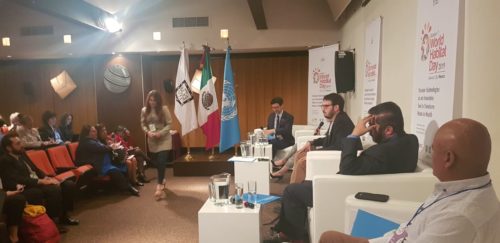
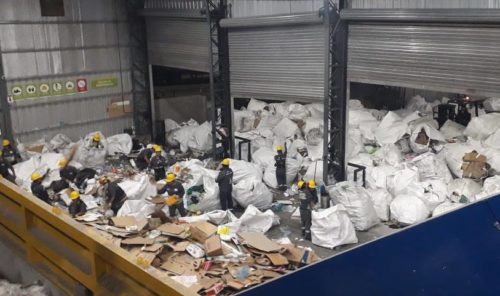
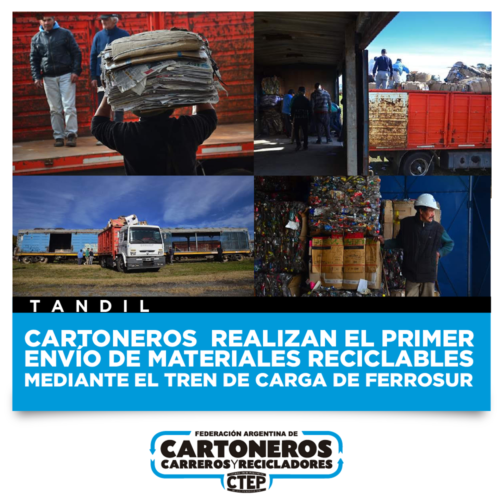
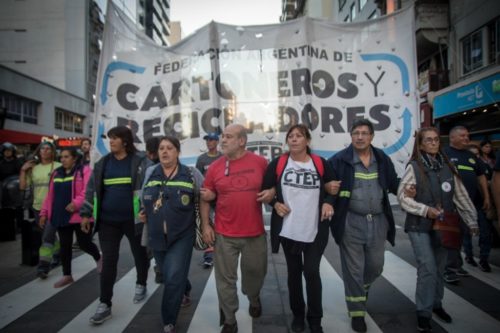
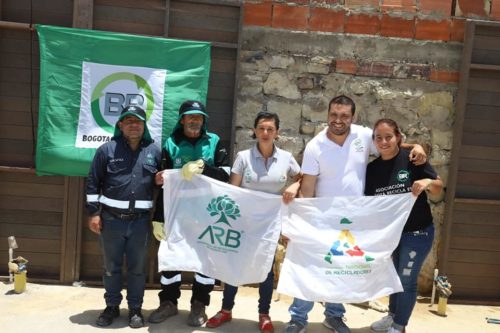
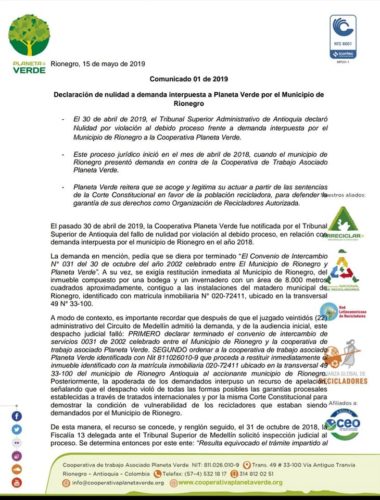
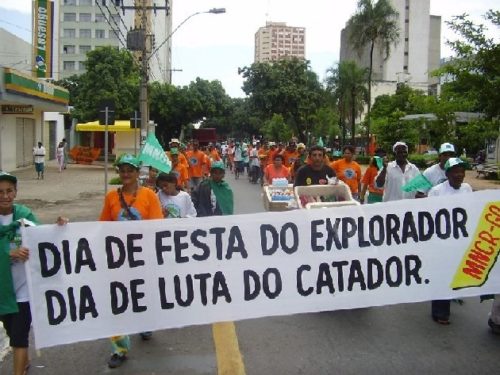
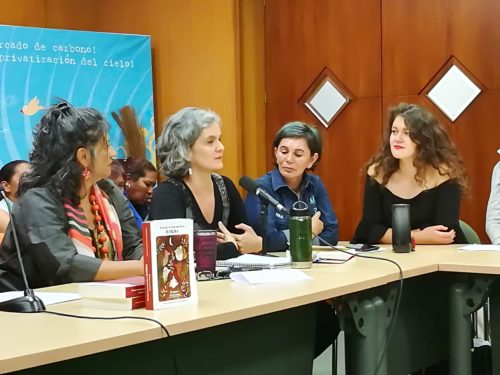
 Europe
Europe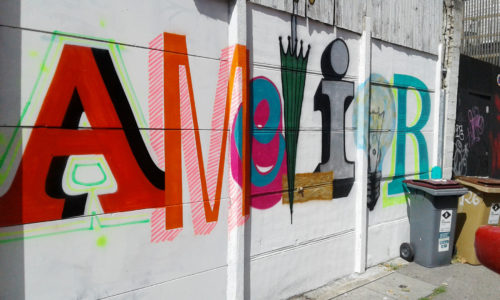
 North America
North America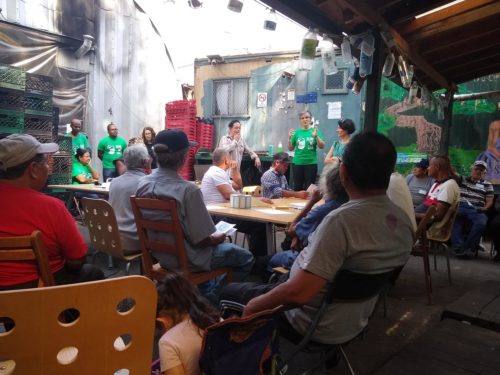
Leave a comment